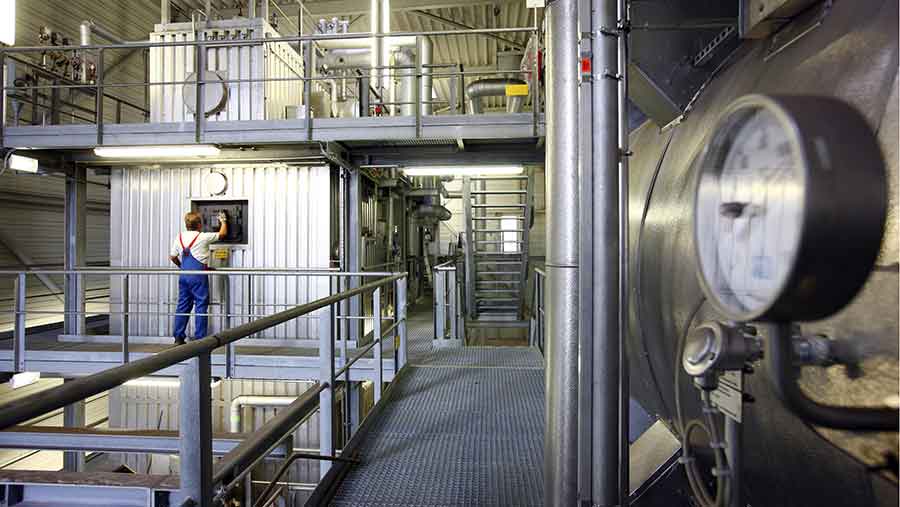Surprise policy changes threaten new CHP biomass projects
 © Jochen Tack / imagebroker/Rex/Shutterstock
© Jochen Tack / imagebroker/Rex/Shutterstock Some new biomass combined heat and power energy projects face being scrapped following unexpected changes to the way renewable heating support is calculated.
An amendment to Renewable Heat Incentive (RHI) regulations means any new biomass CHP plants applying for support from 1 August have to meet additional generation requirements to receive the highest payments.
Ultimately biomass-fuelled CHP systems will only receive the full RHI payment (4.17p/kWh) on eligible heat if more than 20% of fuel is used for electricity generation.
Support for lower “power efficiencies” will be decreased according to a complex formula, down to a rate equal to the standard relevant biomass-only tariff (2.03p/kWh for large solid biomass).
Previously a single solid biomass CHP tariff of 4.22p/kWh was paid for all eligible heat.
See also: UK biogas up 30% in a year but growth slows
Industry experts condemned the move, which has been introduced suddenly without consultation, and will unfairly affect plants already under construction and those built in future.
The Renewable Energy Association estimates £140m worth of investment is at risk after a survey of 36 companies developing UK biomass CHP projects found that more than two-thirds felt the changes would have a very negative impact.
The NFU said it was aware of 12 projects, ranging from 1MW to 6MW, that had committed more than £30m of capital expenditure. It labelled the changes unfair and warned the financial feasibility and viability of schemes would be severely affected. Biomass CHP has been a particularly popular energy choice in the poultry sector.
REA head of policy and external affairs, James Court, said the changes would significantly damage investor confidence in biomass CHP and called on the Department for Business, Energy & Industrial Strategy to withdraw the amendment until a consultation had been conducted, or introduce a grace period for those that had made a significant financial commitment.
The NFU also encouraged people to raise concerns with their MP, focusing on the lack of consultation, lack of notice (especially for those committed to schemes) and timing of the changes just as parliament begins the summer recess.
Read full Ofgem guidance on ongoing obligations and payments (PDF)
